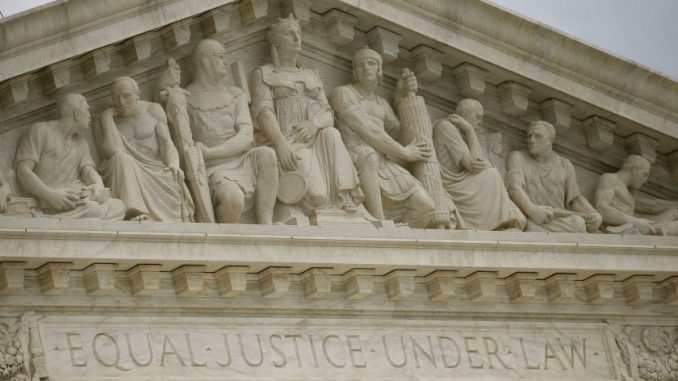
The Supreme Court declared Monday that the historic Civil Rights Act of 1964 protects LGBTQ employees from workplace discrimination.
In a major victory for lesbian, gay, bisexual and transgender workers, the justices said the law’s ban on job discrimination on basis of “sex” can be read to forbid bias against employees because of their sexual orientation or gender identity.
Justice Neil M. Gorsuch, appointed by President Trump, spoke for a 6-3 majority.
“Today, we must decide whether an employer can fire someone simply for being homosexual or transgender. The answer is clear. An employer who fires an individual for being homosexual or transgender fires that person for traits or actions it would not have questioned in members of a different sex. Sex plays a necessary and undisguishable role in the decision, exactly what Title VII forbids.”
“Those who adopted the Civil Rights Act might not have anticipated their work would lead to this particular result. Likely, they weren’t thinking about many of the act’s consequences that have become apparent over the years, including its prohibition against discrimination on the basis of motherhood or its ban on the sexual harassment of male employees. But the limits of the drafters’ imagination supply no reason to ignore the law’s demands. When the express terms of a statute give us one answer and extratextual considerations suggest another, it’s no contest. Only the written word is the law, and all persons are entitled to its benefit.”
The decision is a remarkable example of a conservative justice following the words of a liberal law — in this instance, the Civil Rights Act of 1964. Gorsuch said it was surely not intended to protect gay and lesbian employees, but its words prohibited employers from making hiring or firing decisions based on sex, he said.
Joining the decision were Chief Justice John G. Roberts Jr. and Justices Ruth Bader Ginsburg, Stephen Breyer, Sonia Sotomayor and Elena Kagan. In dissent were Justices Clarence Thomas, Samuel A. Alito Jr. and Brett M. Kavanaugh.
*story by The Los Angeles Times